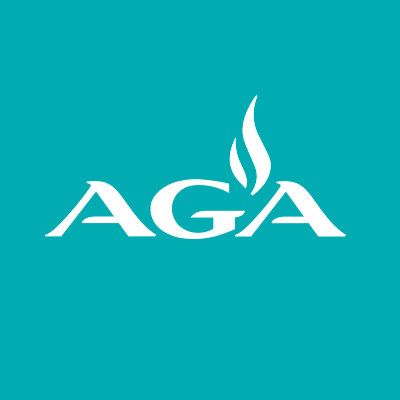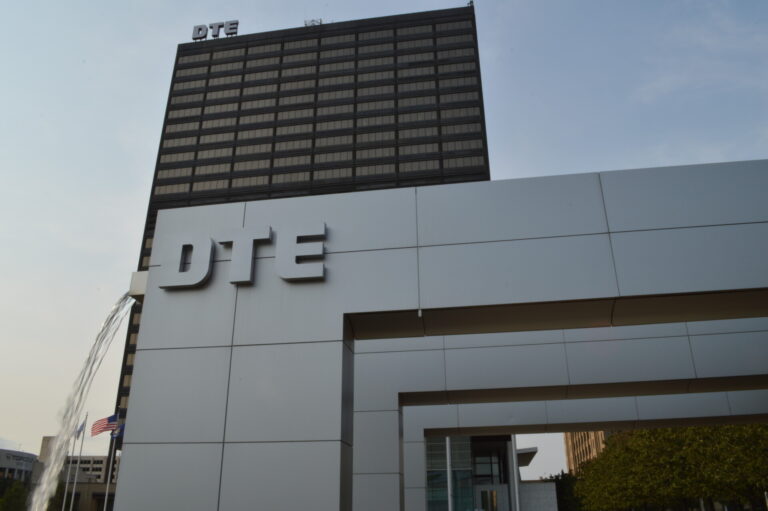American Gas Association

American Gas Association
The American Gas Association (AGA) is a trade group for U.S. gas distribution utilities and their corporate parents. AGA promotes the use of methane gas and seeks to influence federal, state, and local energy policy. It has led national campaigns to block appliance energy efficiency standards, halt building code upgrades designed to reduce pollution, and thwart local governments’ efforts to reduce reliance on fossil fuels. The group’s board is made up of gas utility executives. DTE Energy Chairman and CEO Jerry Norcia chaired the AGA Board in 2024. The 2025 Board Chair is Lloyd Yates, president and CEO of NiSource.
AGA’s political advocacy efforts are far-reaching. The Energy and Policy Institute submitted expert testimony on behalf of the Citizens Utility Board of Minnesota to dispute rate recovery of AGA dues by Xcel Energy in its Minnesota gas rate case filed in 2023. Xcel ultimately agreed to drop its request to recover AGA dues as part of a settlement. As detailed in the testimony and described below, most of AGA’s political activities are aimed at promoting gas usage and/or hindering efforts to increase energy efficiency and beneficial electrification. These activities include:
- Funding and participating in state- and regionally-focused organizations that campaign against electrification policies, including Partners for Energy Progress and Coloradans for Energy Access;
- Coordinating and convening “pro-natural gas campaigns” to “ensure a more coordinated and informed approach to these disparate initiatives”;
- Participating in federal rulemaking dockets and legal challenges to oppose improved energy efficiency standards for appliances;
- Publishing materials that advocate against U.S. Department of Energy (DOE) rules, such as the AGA product, “DOE’s Furnace Rule Harms Americans”;
- Hiring and deploying consultants to undermine scientific research on the health risks of gas appliances, despite internal awareness of these risks;
- Mounting efforts to subvert decarbonization provisions in the Inflation Reduction Act, specifically a program that supports homeowners to replace gas furnaces and stoves with electric options;
- Opposing building code improvements that would help consumers reduce their overall energy use and reliance on fossil fuels;
- Assisting member utilities with efforts to pass state legislation that blocks local climate action;
- Funding polling on public attitudes toward natural gas;
- Gathering data and analytics on natural gas that “support [the AGA’s] narrative”;
- Preparing materials that map out the “opposition,” including environmental non-profit organizations;
- Initiating a “communications toolkit for influencers and stakeholders”;
- “Creating a new platform and outreach strategy to recruit and engage supporters of natural gas”;
- “Recruiting additional coalition partners for increased presence at the state and local level” and “activating fellow trade associations at the regional and local level for hearings, city council meetings, etc.” to defend natural gas;
- Hosting monthly calls with member companies and operating a “members only section” of the AGA website to provide resources as part of the campaign to defend natural gas;
- Participating in the U.S. Consumer Product Safety Commission (CPSC) Request for Information on Gas Stove Hazards and Potential Solutions docket, which included running a Facebook advertising campaign to solicit comments to the CPSC that featured a controversial study to fit the industry’s narrative;
- Working with “reporters and media outlets to position the association and industry positively in the media” and “lead[ing] … branding and advertising campaigns targeted at key audiences in Washington, D.C., with the goal of reaching key influencers and decision-makers in the federal arena, and in local areas as needed”;
- Hiring social media “influencers” to promote natural gas and sponsoring social media posts as part of AGA’s “#cookingwithgas” campaign;
- Developing analyses to “undermine studies on the detrimental indoor air quality impacts of gas stoves” as part of the California Energy Commission’s rulemaking docket on its 2022 statewide building code;
- Hosting a dance party to coincide with the annual meeting of the National Association of Regulatory Utility Commissioners (NARUC), the trade group for utility regulators;
- Funding gatherings and sponsoring meetings of politicians, including Council of State Governments West (“CSG West”), Democratic Governors’ Association, National Association of Counties, National Conference of State Legislators, National Governors Association, Western Governors Association; and
- Filing joint comments with the Edison Electric Institute (“EEI”) to the U.S. Securities and Exchange Commission docket on Climate-Related Disclosure for Investors, seeking to limit such disclosures.
- Funding Reichman Jorgensen LLP for undisclosed legal services in 2022 and 2023. Reichman Jorgensen is the law firm that has helped overturn Berkeley’s gas ban hookup policy, and is challenging New York State’s policy to end gas in new construction buildings and South Coast Air Quality Management District’s NOx emission rules for appliances. South Coast AQMD is the regulatory agency responsible for improving air quality for Los Angeles, Orange, Riverside and San Bernardino counties.
AGA pushes false solutions
As part of their effort to increase reliance on methane gas and related infrastructure investment, AGA and its member utilities routinely promote false solutions that are not proven at scale, cost more than electrification, and have limited climate benefits. The gas industry has doubled down in recent years on “renewable natural gas” or biogas, and hydrogen, using dubious promises about their benefits to justify the ongoing expansion of the methane gas system.
Internal AGA meeting notes from March 2018 reveal that the industry planned to use biogas advocacy as part of a strategy to “mitigate” stakeholder opposition, specifically from environmental groups. Several reports and studies in recent years cast serious doubt over utilities’ projected costs, benefits, and even viability of biogas and hydrogen.
Utility customers foot the bill for AGA misinformation
In April 2024, U.S. Senators Sheldon Whitehouse and Ed Markey blasted AGA for “its misinformation campaigns.” Markey noted that AGA has known about the health harms of gas appliances “for decades, but worked for years to mislead the public.” AGA is funded in large part by dues paid by its gas utility members, which those member utilities generally add to their customers’ utility bills.
“These associations can say the terrible things and push the fraudulent lies that the companies themselves with customers and shareholders don’t want to be immediately associated with,” Whitehouse said. “Again, more deception as to who’s really behind this.”
To push back against the links between gas stove emissions and respiratory illness, AGA adapted the Big Tobacco playbook to suit its needs. It undermined science that showed gas appliances pose health risks, including an increased risk of developing childhood asthma – even using some of the same researchers and public relations firms paid by tobacco companies to downplay the proven risks of their product. The gas industry’s tactics influenced regulatory decision-making at the Environmental Protection Agency and Consumer Product Safety Commission and have continued up to the present day.
Utilities argue they separate the costs of AGA’s lobbying activities from the amounts requested for ratepayer recovery. However, AGA internal budget documents show that political advocacy activities permeate the organization and broadly commingle with other activities. As a result, it appears that AGA and its member utilities routinely undercount the group’s political advocacy expenses and end up charging utility customers for them – even though these activities often conflict with customers’ interests, like reducing energy usage/bills, avoiding the price volatility of methane gas, and addressing climate change.
Utilities face mounting pressure to leave AGA
Investor-owned gas utilities are not required to be AGA members. Eversource Energy, New England’s largest utility, left AGA in 2022 to “redirect costs to more targeted associations and memberships with a focus on decarbonization to support [its] company-wide operations.” Eversource’s exit demonstrates that AGA membership is not necessary for utility operations, especially for utilities that have committed to decarbonize.
In the wake of Eversource’s decision to leave AGA, other utilities including Xcel Energy and PG&E have faced pressure to follow suit. A letter that climate, public health, and environmental justice groups sent to Xcel CEO Bob Frenzel noted that AGA is “at the forefront” of gas lobbying efforts, including interference in state policies designed to reduce reliance on fossil fuels.
In April 2024, protesters convened outside AGA’s office in Washington, D.C. to spotlight AGA’s practice of using misinformation to keep Americans tethered to fossil fuels.



